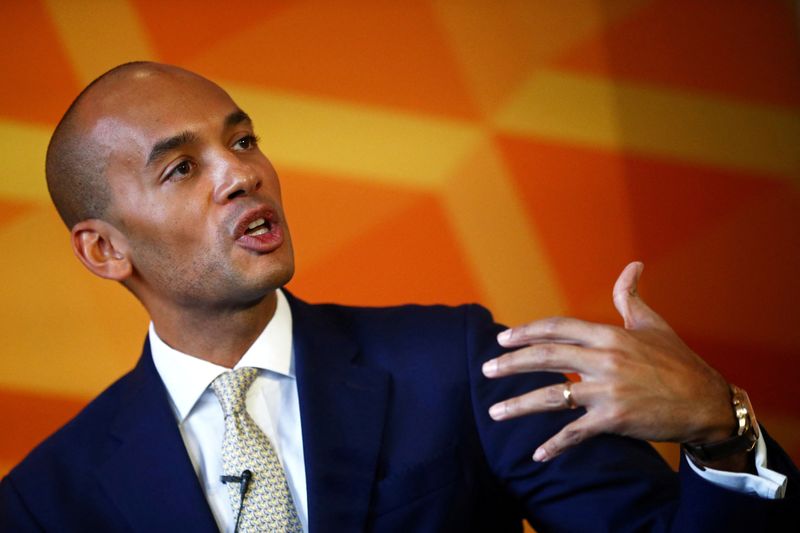Anti-ESG backlash in US is overstated, JPMorgan exec says
2024.10.01 16:14
By Virginia Furness
LONDON (Reuters) – The impact of a political backlash against environmental, social and governance-related (ESG) issues in the United States is overstated and having little bearing on the country’s burgeoning green economy, a JPMorgan executive said on Tuesday.
While some companies and investors were saying less about sustainability, they were still moving money in a similar way to peers in Europe, Chuka Umunna, JPMorgan’s global head of sustainable solutions, told the Reuters Energy Transition conference in London.
“If you peel away all the noise and look at what investors are doing, it isn’t so different, albeit they may not be using the labels quite in the way that we do in Europe,” Umunna, who is also the bank’s regional head of green economy investment banking, said.
“The U.S. is not so much pulling back because of the weaponisation of the term ESG, the reality in the States is more complex than that.”
A host of U.S.-based investors, including the fund arm of JPMorgan, have pulled back from global climate coalitions this year amid a tense political backdrop as some U.S. Republican politicians said membership could breach antitrust rules.
Despite that, Umunna noted while more anti-ESG resolutions were proposed during the most recent proxy-voting season, less than 2% actually passed. At the state level, meanwhile, less than 10% of anti-ESG bills actually passed.
While those funds trying to raise investment dollars in Republican states might tailor their pitch accordingly, the large global clients of the bank’s fund arm tended to stick to a single investment stewardship policy across the globe.

For companies in the real economy of the United States seeking investment or bank loan support, arguably the greater challenges came from inflation, supply-chain issues and high interest rates, he added.
“Is all the noise depressing the valuations? I’m not sure it necessarily is,” he said. “I think there are more fundamental issues at play.”








